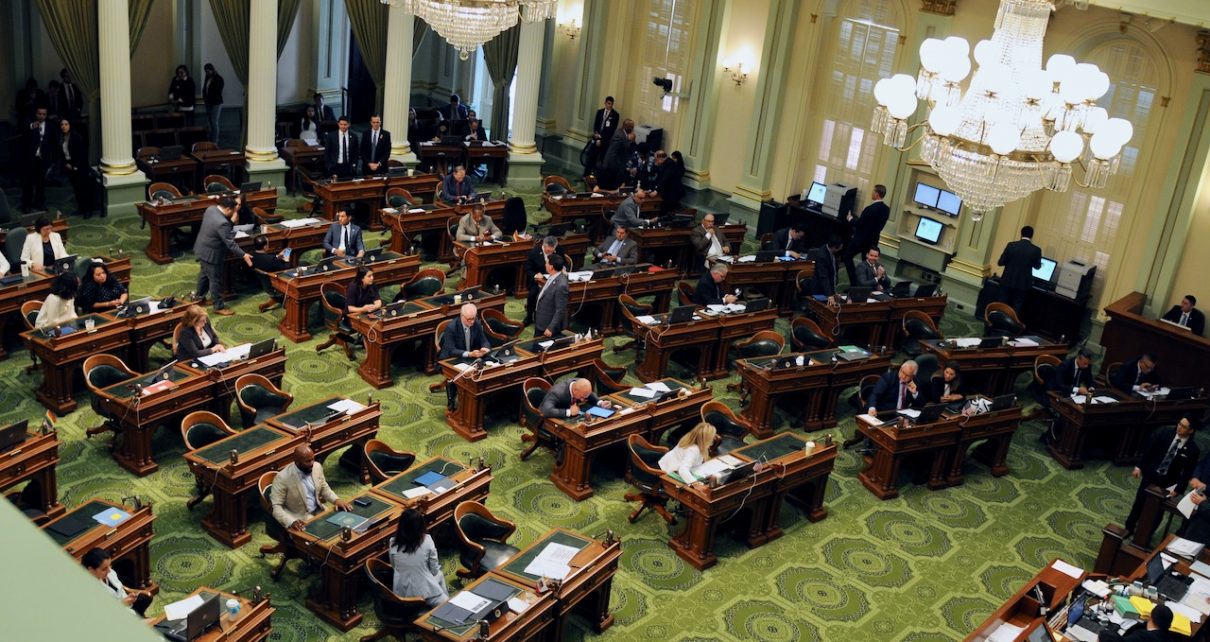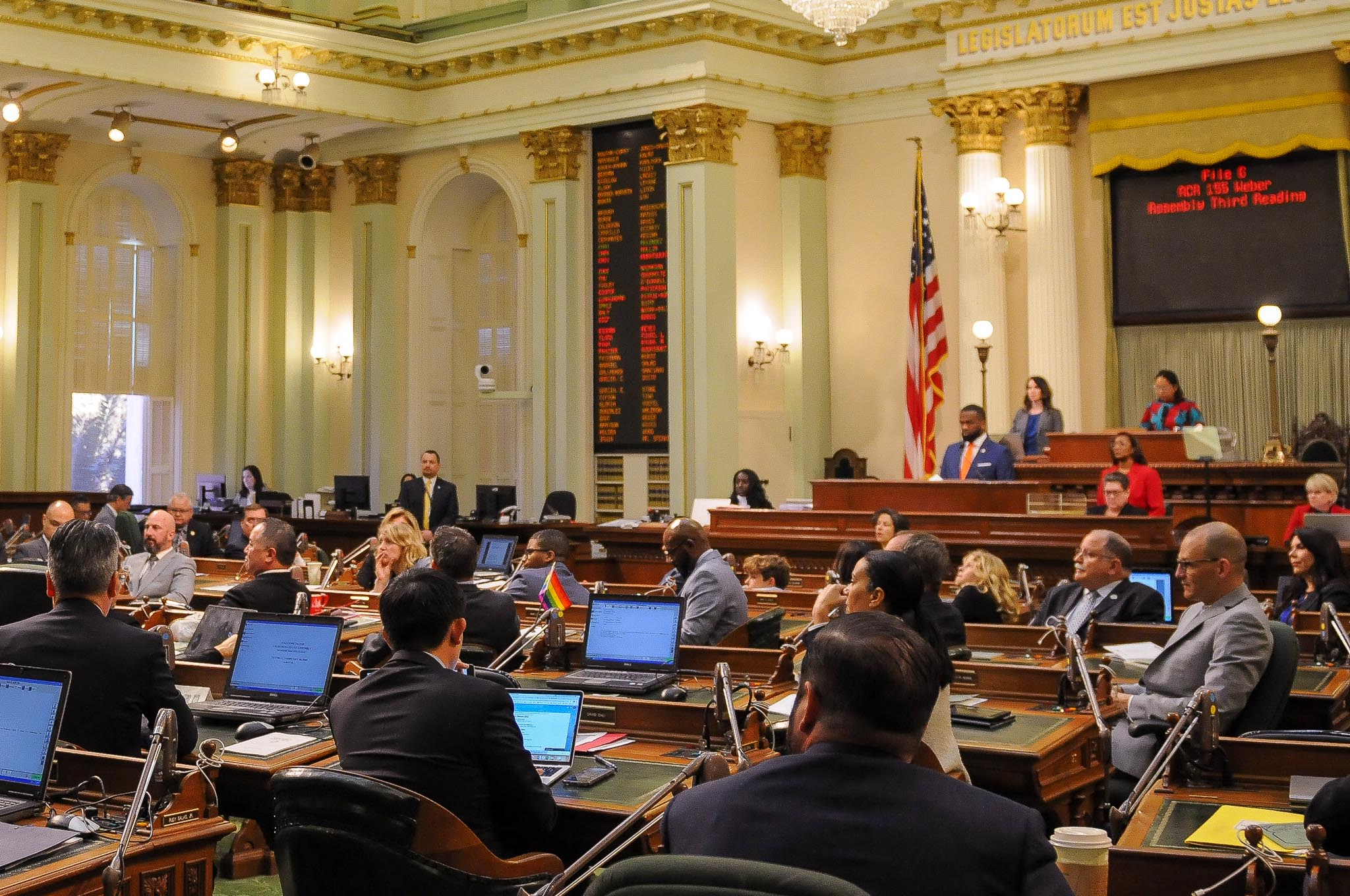
California State Assembly Chamber. (Photo: Kevin Sanders for California Globe)
Who Should Make Statements in California Bills?
Lawmaking power is granted to the California Legislature
By Chris Micheli, October 18, 2023 6:24 am
Who should make statements in California bills? I hope the answer is obviously the Legislature. The lawmaking power is granted to the California Legislature by Article IV of our state Constitution. What form should these statements take?
Findings and Declarations
Most commonly, California bills and statutes contain the following opening statement for purposes of listing findings and declarations:
The Legislature finds and declares all of the following:
However, in some instances, different phrases can be found in California legislation, such as bills that reached the Governor’s Desk at the end of the 2023 Session. For example, one bill provides:
The Legislature finds that improving promotional salary relationships is a top priority …
The above example is not often found, perhaps just a handful I could see, in California’s 29 Codes. Most often, the opening statement includes both “finds and declares.” Bills, and ultimately statutes, should use consistent language in bills and statutes.
Because legislative findings and declarations are well known, those words should be used throughout California bills and statutes, rather than shortened version, such as only “the Legislature finds…”
Intent Statements
The second type of statements in California bills are those expressing the intent of the Legislature. The standard opening phrase is the following:
It is the intent of the Legislature…
OR
The Legislature intends….
Nonetheless, in reviewing bills that reached the Governor’s Desk after the 2023 Session, I came across variations of this standard phrase. For example, one bill provided the following that did not mention the Legislature, but instead referenced “this act”. The following is an example:
It is the intent of this act that all of the following are achieved:
Another example comes from the same bill that included two separate plus sections that contained intent statements. In the first section, the intent statement does not use the standard language; it does not reference the Legislature; and it actually is stated in the negative (i.e., “it is not intended…”) Here is that example:
It is not intended to be a violation of paragraph (29) of subdivision (a) of Section 1770 of the Civil Code …
The second plus section in the same bill references the Legislature and uses the word “intends,” but it also does not use the standard language. Here is that example:
The Legislature intends that it is not a violation of paragraph (29) of subdivision (a) of Section 1770 of the Civil Code for a ….
In the three last examples set forth above, should a court view these statements differently than the standard plus section that provides, “The Legislature finds and declares”? Might a court do so? Courts say that the Legislature chooses its words in statutes deliberately. Also, the Legislature is viewed as meaning something different when different language is used than in standard statutory provisions.
This is one of the reasons that “consistency” in statutory language is one of the most important guides for legislative drafters. Along with clarity (i.e., using clear, non-legalese language), using the same language throughout statutes is an important drafting principle.
- What Type of Lobbyist Do You Want to Be? - February 28, 2026
- Proration of Estate Taxes - February 28, 2026
- Corporations Commissioner Powers - February 27, 2026




